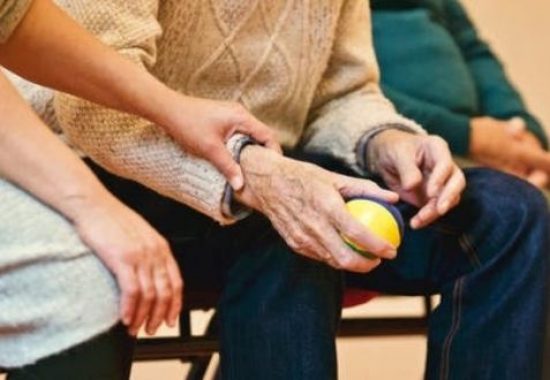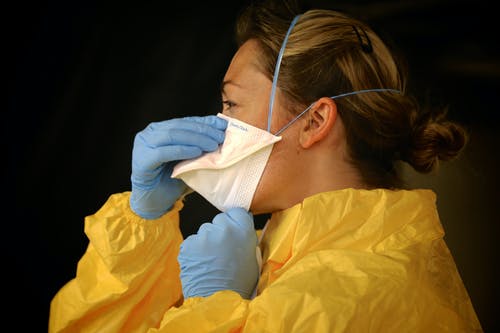
As a health or social care professional in the UK, there are a number of courses that you can take to familiarize yourself with different processes and increase your employability. While these certificates and training may not all be legal requirements, it is an implied rule in the industry that if you want to get hired quickly or be eligible for more lucrative positions, having these certifications will be close to necessary. The Care Certificate is one of these that is targeted specifically towards social care sector professionals and also comes in handy for health care professionals.
The Care Certificate was introduced in 2015 and since then has been used to educate industry professionals on the best practices when dealing with patients. By completing this certification, you prove that you have undergone training and will be able to provide exceptional care at the standard expected of health professionals employed in the UK.
In 2015 the three health institutions in the UK came together to create the Care Certificate which targets new professionals to get them up to speed with the best practices in the industry. It is a standard certification that covers a range of skills and behaviours that healthcare professionals need to have, and it also gives them basic knowledge about what is required to perform their job successfully. It is a way to homogenize the skill set of industry professionals, which yields a better patient experience and higher quality of work throughout the industry.
The Care Certificate is not a legal requirement for care professionals, but it is a requirement for any employer to prove to the Care Quality Commission (CQC) that the people they have employed are meeting the necessary professional standards, and the Care Certificate is the first step in that direction. Other than the Care Certificate, the employer is free to implement other requirements that the employee also has to meet.
During your career as a healthcare professional, you will need to undergo multiple pieces of training and earn a variety of certificates. In some cases, the certification or training is niched and may have nothing to do with the rest of your professional work. In other cases, for instance, the Care Certificate is a stepping stone towards other training. Moreover, the progress that you can make with the Care Certification will count towards other training that you undertake.
For instance, when you complete the Care Certification, this will count towards different courses that you take in the Regulated Qualification Framework (RQF). Specifically, this will help you with the Level 2 Diploma in Care, Level 3 Diploma in Adult Care, Level 3 Diploma in Healthcare Support, and the Level 2 Diploma in Emergency Care Assistance.
If you are planning on going for the Care Certification, there are a number of resources that you can use to help you prepare effectively. You can find plenty of case studies that discuss how to approach the exam, together with Care Certificate answers that will give you an idea of what is expected from the candidate. The great thing is that you can’t really fail the Care Certification. If you don’t clear it the first time around, you can always come back and retry and keep adding to your attempts till you have enough evidence to prove that you have sufficient knowledge to be considered a Care Certified professional.
The Care Certificate serves as foundational training. It is something that is commonly undertaken by new professionals, but it is also something that existing professionals can participate in to refresh their skills and enhance their resumes with more recent courses. As mentioned earlier, this is not a legal requirement, but it will be necessary when you apply to work with an employer that is regulated by the CQC.
Therefore, it is a highly recommended training for people who are new to healthcare, professionals who are joining as Healthcare Assistants, as well as Assistant Practitioners. It is also a good certification for Care Support Workers and Healthcare Support Workers. If you are providing Adult Social Care or care in a residential home, nursing home, hospice, or any other domestic setting, this is the certification for you.
If you are part of the healthcare industry as a regulated professional, for instance, if you are a doctor or an occupational therapist, it is not necessary to go for this training since it will be a part of your professional training. It won’t be labelled as the Care Certification, but over the course of your professional training, you will learn all the concepts covered in the Care Certification.
The Care Certificate is made up of 15 standards. The aim here is to build a portfolio from real work that will demonstrate that you have achieved the skills necessary for each standard. This is not a certification in which you have to prepare for exams, but you do have to present this information in front of a team of assessors who will evaluate how competent you are in the various standards.
The 15 standards include:
– Basic life support
– Health and safety
– Handling information
– Infection prevention and control
– Working in a person-centred way
– Communication
– Privacy and dignity
– Fluids and nutrition
– Safeguarding adults
– Safeguarding children
– Awareness of mental health, dementia, and learning disabilities
– Understanding your role
– Your personal development
– Duty of care
– Equality and diversity
When you start to appear for assessments, you may demonstrate competence in one standard but not in another. In such a case, you won’t be awarded the certificate, but that one standard in which you are proficient will be marked as completed. The next time you appear, you might complete another standard or another few standards. In this way, you are consistently building your portfolio of experience, and eventually, when you have cleared all the standards, you are awarded the certification.

When appearing for the Care Certification, it will be useful to become familiar with the assessment framework. Each standard will have a learning outcome and the assessor is looking to see if you have met this requirement. This way, you can prepare with an end goal in mind and demonstrate the skills in the exact way that the assessor will be evaluating them.